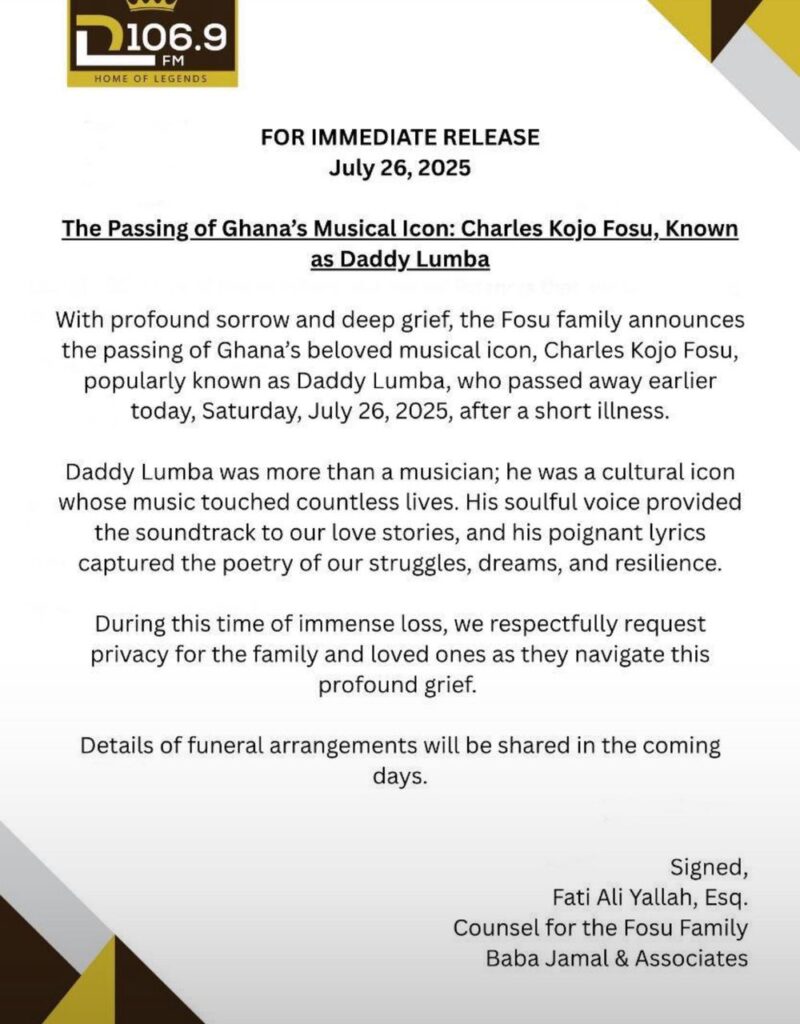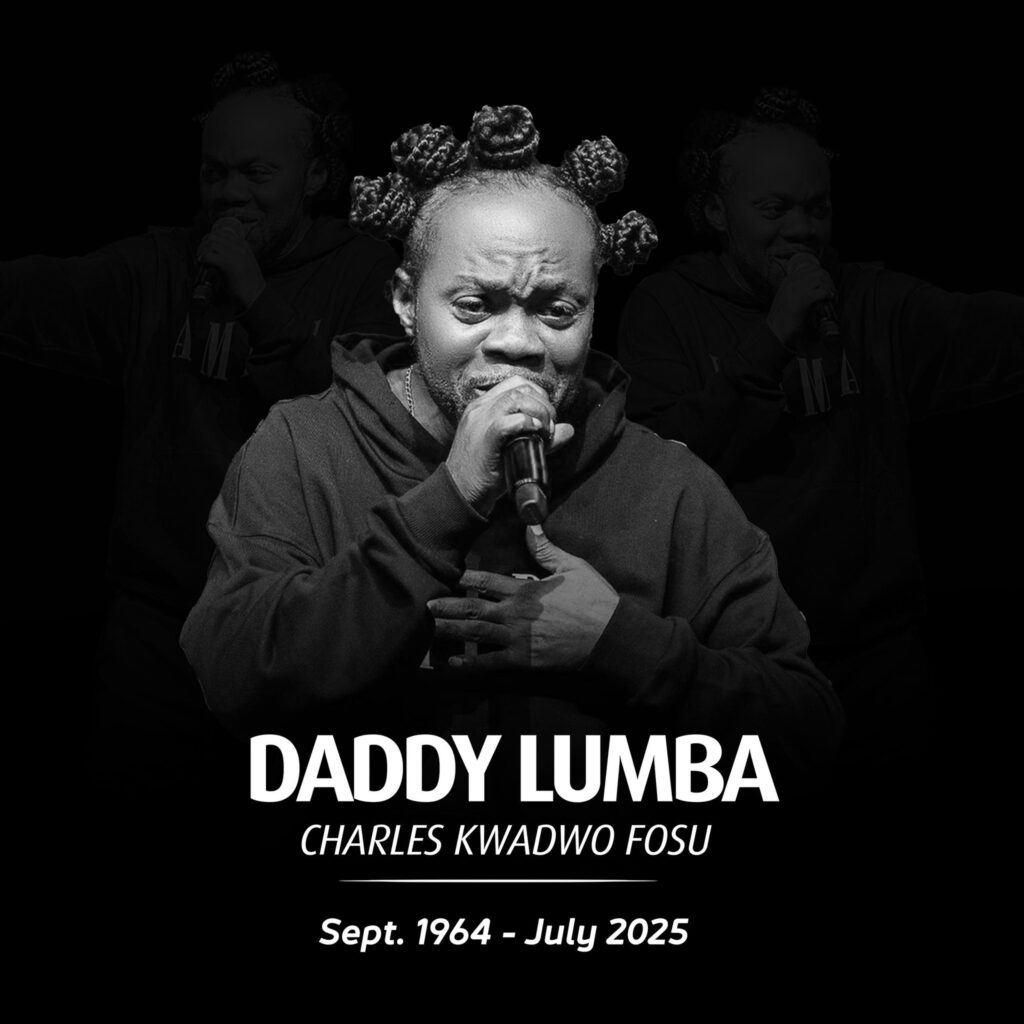Ghanaian highlife legend Daddy Lumba, born Charles Kojo Fosu, has passed away at the age of 60, following a short illness. His death occurred on Saturday, July 26, 2025, at the Bank Hospital in Accra, according to a statement issued by his family.
Confirming the news, the counsel for the Fosu family shared that the celebrated musician’s passing has left a deep void in the hearts of many Ghanaians who cherished his decades-long contribution to music and culture.
“With profound sorrow and deep grief, the Fosu family announces the passing of Ghana’s beloved musical icon, Charles Kojo Fosu, popularly known as Daddy Lumba, who passed away earlier today, Saturday, July 26, 2025, after a short illness,” the statement said.
The family described the late artiste as more than just a musician, saying: “Daddy Lumba was more than a musician; he was a cultural icon whose music touched countless lives. His soulful voice provided the soundtrack to our love stories, and his poignant lyrics captured the poetry of our struggles, dreams, and resilience.”
As the nation mourns, the Fosu family has appealed for privacy during this difficult period and promised to release funeral arrangements in due course.

Tributes have since poured in from across the political and cultural landscape, including from President John Dramani Mahama, former President Nana Addo Dankwa Akufo-Addo, and former Vice President Dr Mahamudu Bawumia.
In a heartfelt message posted to Facebook, President Mahama praised Lumba’s remarkable talent and enduring impact on Ghanaian society.
“I have learnt with deep sorrow the passing of Ghanaian music legend, Charles Kwadwo Fosu, affectionately known as Daddy Lumba. Lumba’s unmatched musical genius provided the soundtrack to our lives, carrying us through various phases of life. The beats to his memorable songs may have died down, but his enduring legacy will echo through the ages. On behalf of the Government of Ghana, I extend heartfelt condolences to his family and loved ones for this irreplaceable loss,” Mahama wrote.
Former President Akufo-Addo, who had previously received campaign support from Lumba in the form of hit songs, reflected on the loss of a personal friend and national treasure.
“With regret, I have received the sad news of the passing of my dear friend and renowned music icon, Charles Kwadwo Fosu. Daddy Lumba, as we affectionately call him, was a pantheon among musical greats of all-time and had a special connection with his fans and the entire nation. His hit-making songs will remain lasting contributions to my presidential journey and will forever be etched in the annals of political campaign of the New Patriotic Party. He will be sorely missed. May he peacefully rest in the Bosom of the Almighty until the Last Day of the Resurrection, when we shall all meet again.”
Also reacting to the news, former Vice President Dr Mahamudu Bawumia highlighted the influential role Daddy Lumba played in shaping highlife music in Ghana.
“I have been informed of the saddening news of the passing of a true music icon, who’s had an incredible career spanning over three decades. Charles Kwadwo Fosu, popularly known by his stage name Daddy Lumba, has been a pillar in Ghana’s highlife genre, through whom many great talents have been nurtured and introduced. His brilliant compositions and works have not only entertained but also inspired and uplifted many of us. His passing is indeed a huge blow, not only to the music fraternity but to the entire country. Samira and I extend our heartfelt condolences to his wife, family, fans, and the whole country. LEGEND, REST WELL,” Dr Bawumia wrote.
Daddy Lumba’s musical journey began in the late 1980s, but it was in 1990 that he launched his solo career with the release of Obi Ate Meso Buo, an album that featured popular tracks like “Theresa,” inspired by a former lover. Over the years, he produced 33 albums, with hits such as Sika Asem, Aben Wo Ha, Wo Ho Kyere, Awosoo, Give Peace A Chance, and Ahenfo Kyiniye. His most recent album, Ofon Na Edi Asem Fo, released in December 2022, marked a reunion with longtime collaborator Kweku Mensah.

